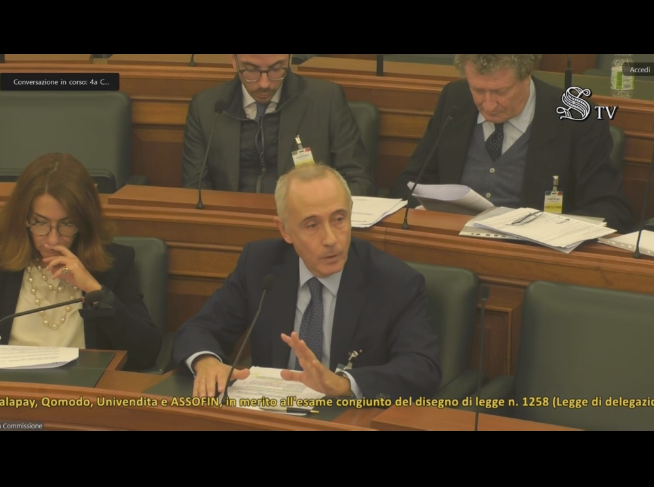ROME, November 13 – “If the European directive on consumer credit were implemented by reserving the granting of payment extensions exclusively to banks and finance companies, the companies in our sector, which often resort to forms of interest-free credit, without other charges and by taking on the entire business risk, they could suffer a heavy backlash with inevitable repercussions on employment”. This was reported by Ciro Sinatra, president of Univendita, the first direct sales association, member of Confcommercio, during the hearing at the EU Policies Commission of the Senate on the 2024 European delegation law which will have to implement, in article 3, the EU directive on consumer credit 2023/2225.
“Deferred payment without interest and without charges – added Sinatra – is an important form of consumer credit which direct sales companies in Italy use to meet people’s needs, especially in such a difficult economic moment. Suffice it to say that every year our customers sign over 250 thousand orders with interest-free deferred payment.”
The Univendita president then explained: “On the other hand, the possibility we have of obtaining credit without interest and costs is currently provided for by the Consolidated Banking Act and, therefore, it is now crucial for direct sales that the definition of ‘creditor’ included in the directive is confirmed in its current version, so as to allow our companies to operate continuously to offer non-onerous, differentiated and sustainable forms of payment, always taking into due consideration the risks of consumer over-indebtedness. If the transposition were to reserve this prerogative for credit institutions and financial institutions, our sector would be in difficulty and citizens would find themselves faced with much more expensive forms of financing on average”.
“Our further request is that these forms of payment deferrals without interest and charges, on which the business risk is totally borne by the company, can maintain simplified formal and bureaucratic obligations – concluded Sinatra – in order to preserve the ease access to goods and services which are often of fundamental importance for people’s quality of life”.


